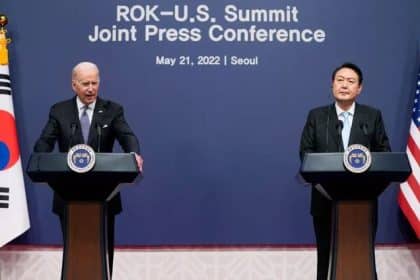We’ve Made Progress on Climate – but it’s Time to Accelerate
COMMENTARY | The Ecomodernist

A decade ago the world seemed on track for a dark climate future. Global emissions were increasing at a rate of 3% per year, China was building a new coal plant every three days, and the idea that global emissions could double or even triple by the end of the century did not seem particularly far-fetched. A lot of the climate impacts literature at the time focused on a scenario called RCP8.5 – the only no-policy baseline featured in the IPCC 5th Assessment Report – that projected a 21st century dominated by coal and warming of 4ºC to 5ºC by 2100.
Today things have changed markedly. Global coal use peaked back in 2013, and the International Energy Agency’s (IEA) most recent World Energy Outlook suggests that coal is now in “structural decline.” Global emissions are still increasing, but at a rate of only 1% per year, and there is a chance that global emissions have reached their peak and will soon start to decline. Clean energy sources like wind and solar are the cheapest new form of energy at the margin and many countries, and the recent IPCC 6th Assessment Report acknowledges that “the likelihood of high emission scenarios such as RCP8.5 or SSP5-8.5 is considered low in light of recent developments in the energy sector.”
Thirty-two countries have absolutely decoupled their emissions from economic growth, and global emissions may begin to fall this decade as countries are increasingly committing to more ambitious near-term and long-term climate policies. Countries responsible for over two thirds of global emissions – including the US, China, EU, UK, Japan, South Korea, and others have made commitments to reach net-zero emissions by 2050 or 2060.
At the same time, the world is not on track today to reduce emissions rapidly enough to meet the Paris Agreement goal of limiting warming to well-below 2ºC. The world is currently on track for a central estimate of just under 3ºC warming by 2100 under policies in place today. If we include near-term 2030s commitments made by countries under the Paris Agreement, this puts us on track for around 2.4ºC warming. Including mid-century net-zero commitments puts us on track for right around 2ºC. However, these long-commitments are in some cases stated goals rather than codified in legislation; the translation of long-term commitments into near-term goals will go a long way toward demonstrating how seriously we should take these targets.
Given the historic trends of falling clean energy costs and strengthening climate policy, it seems unlikely that we will remain in a current policy-type world for the remainder of the 21st century. At the same time, we cannot take future emissions reductions for granted; both stronger policy and mitigation are needed to more rapidly bend the curve of future emissions. We also need to guard against backsliding – it is certainly possible to imagine a world of resurgent populist movements that repeal climate policy and directly subsidize the use of domestic fossil fuel resources, as the prior US administration unsuccessfully attempted to do.
These future warming estimates come with some large uncertainties; we do not fully understand how the climate will respond to our emissions, or precisely how the ability of the land and oceans to take up a portion of our emissions will change as the world warms. These uncertainties are not our friend; while our central estimate of warming from current policies is 3ºC by 2100, we cannot fully rule out a chance of 4ºC if we get unlucky (or as little as 2ºC if we get lucky).
There has, thankfully, been some progress in narrowing this uncertainty in recent years. The recent IPCC 6th Assessment Report for the first time meaningfully narrowed the range of climate sensitivity. Prior reports suggested that a doubling of atmospheric CO2 concentrations – an outcome consistent with current policies – would likely result in warming of between 1.5ºC and 4.5ºC at equilibrium. The recent report cuts this range in half, suggesting that the world would likely warm somewhere between 2.5ºC and 4ºC if atmospheric CO2 were doubled.
This means we have a less cloudy climate crystal ball; our predictions of future warming have become more confident, reducing the likelihood of both worst-case and best-case global climate outcomes.
It is useful to both celebrate progress while acknowledging how far we still have to go. We never needed a 5ºC world as a counterfactual to motivate limiting warming to well-below 2ºC. As we move down the path toward mitigating climate change we will necessarily limit the range of possible future outcomes; the path we take need not distract us from our ultimate goal of getting emissions down to net-zero.
At the same time, we need to ensure that our future emissions scenarios reflect the world that is, rather than what might have been if the progress of the last decade was erased. It is time to focus more on the negative impacts of a 3ºC world – not the RCP8.5 nightmares of a 5ºC one.
Zeke Hausfather is the Director of Climate & Energy at the Breakthrough Institute, a contributing author of the recent AR6 IPCC report, and the lead or coauthor of several Breakthrough publications, including Saying the Quiet Part Out Loud, among others. Follow Zeke on Twitter @hausfath.
























